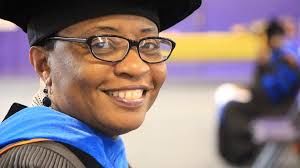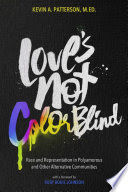Polyamory
African American Polyamorous Leaders
A new ensemble of Black poly leaders are rising in the United States.
Posted April 17, 2018
Consensual non-monogamy (CNM) has been around for as long as human relationships—almost always in the form of polygyny, which is one husband with multiple wives. Polyamory as a specific form of CNM has only been a recognized relationship style since the free love movement of the 1960s. Initially popularized by hippies on the West Coast of the US such as Morning Glory Zell Ravenheart who is credited with coining the term polyamory in her 1986 article in the Green Egg Magazine, polyamory has been growing in popularity over the last 50 years.
For polyamorists and other sex and gender minorities, the advent of Internet communications put that growth into overdrive. Polyamorous social events have been springing up all over the United States with the help of online discussion and sites like Meetup.com. Even with this rapid growth, most polyamorous events have been populated primarily by white people who are looking to expand their relationship options. One of my previous blogs on this site explored diversity in polyamory and some of the reasons for a lack of race and class diversity, and one of my academic articles explains those reasons in even greater depth. In the last five years, however, things have begun to change. There has been a significant increase in the number of people of color, and especially African Americans, who are taking on leadership roles in polyamorous communities. This blog explores the existence of this rising new cohort of Black powerhouse leaders and the social changes that brought them to the fore.
Who Are They?
Intellectuals, organizers, authors, activists, and academicians, an exciting new cohort of Black polyamorous folks have come out of the shadows and into the national spotlight. One of the first to challenge the “poly so white” stereotype was Ron Young of Black & Poly, a magazine, discussion forum, Facebook, and live discussion group dedicated to providing “A place of new discovery, a safe, fun, and knowledgeable place to grow and LEARN."

Academic African Americans are also emerging as thought leaders who publish their research findings and shape public policy. Dr. Zelaika Hepworth Clarke is a member of the faculty at Goddard College and the staff social worker at the DC Center for the LGBT Community. A clinical sexologist and social worker, Clark’s focus on serving under-represented communities extends to sex and gender minorities like polyamorists and others. Christopher Smith, a doctoral candidate in Higher Education at Howard University, published an examination of polyamory and Black Americans in the Journal of Black Sexuality and Relationships in 2016.
Black polyamorous folks have also organized conferences and conventions that provide education and infotainment in setting with a far greater degree of racial sophistication than most white-dominated conferences. Marla Stewart of Velvet Lips LLC began producing the Sex Down South Conference in Atlanta in 2015, and the third SDS is scheduled for September 6 -8, 2018. Ruby Bouie Johnson, the Black Sex Geek, has been organizing the Poly Dallas Millennium conference in (you guessed it) Dallas since 2014, and this year’s fourth annual conference July 13-15 will bring some of the biggest names in polyamorous research, writing, and activism from around the world.

African Americans are also taking the lead in sex education, not only about polyamory but also about kink, safer sex, and social justice for people of color and sex and gender minorities. Sadie Hawkins is a kink-aware sex educator with a diverse range of skills and vocations, from working as a professional FemDom and advocating for sex workers’ and polyamorists’ rights, to performing weddings, collarings, and Christenings as an ordained minister. Orpheus Black is an erotic educator and author specializing in “hierarchical dynamics, non-monogamous relationships, and erotic meditation.” Dirty Lola is a sex educator, storyteller, and podcaster with Sex-Ed-A-Go-Go and Life on the Swingset who has “made her name making sex education fun and empowering.” Robin Wilson-Beattie is a sexuality and disability health educator and speaker who advocates for social and sexual justice. Together, this ensemble of African Americans is the most visible front of what appears to be a growing presence of people of color in polyamorous community leadership.
This is not to say that there are no other people of color in community leadership, most notably Jesus ViramontesGarcia, a Mexican American who is the president of the board of directors, the IT director, and instrumental in the daily function of Loving More, the oldest polyamory advocacy and conference organizing non-profit. There are also people of color among my research respondents who are leaders in their local communities, and some of them are Asian American, Mexican American, and African American.
Why Now?
There are several possible reasons for the dramatic increase in Black poly folks taking leadership roles in their communities and becoming more visible in the press and polyamorous events. The increasing awareness of polyamory in the United States means that the community is growing in general, and that the community is becoming more diverse as it grows. More polyamorous events means that they are happening in cities and towns across the US, making access to polyamorous community far easier, more affordable, and less time consuming than when there were only one or two conferences a year and people from the middle of the nation had to travel to the coasts to attend a Loving More conference.

When I asked Kevin Patterson, an African American speaker, educator, podcaster at Poly Role Models, and author of Love’s Not Colorblind, why he thought that African Americans were beginning to take a place as leaders in polyamorous communities, he responded that: “In sports, it's what we'd call a makeup call. A correction of past mistakes. See, it's not that we're just now taking a place. It's that we've been here the whole time and people are just now starting to pay attention. People are also only just now starting to use their platforms to push forward voices that have been ignored for the entirety of modern polyamory. People are starting to make room."
References
Patterson, K., & Johnson, R. B. (2018). Love's Not Color Blind: Race and Representation in Polyamorous and Other Alternative Communities. Thorntree Press LLC.
Sheff, Elisabeth and Hammers, Corie. (2011) “The Privilege of Perversities: Race, Class, and Education Among Polyamorists and Kinksters” Psychology & Sexuality 2(3): 198-223.


